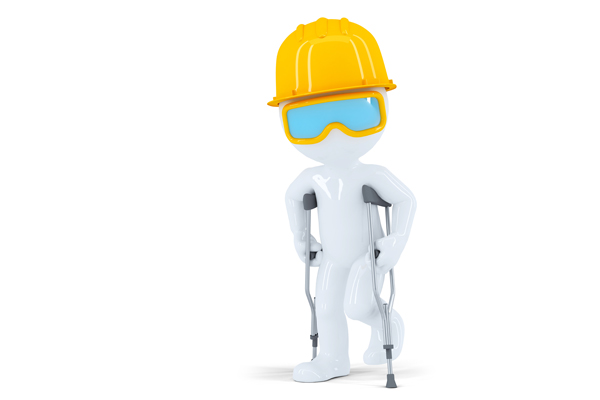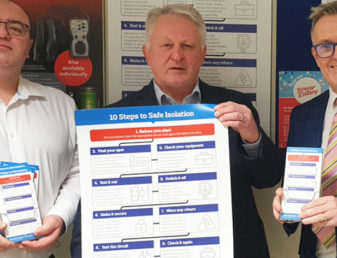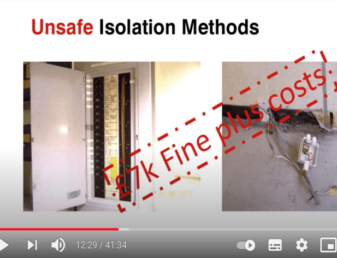RIDDOR is the Reporting of Injuries, Diseases and Dangerous Occurrences Regulations 1995.
It legally requires employers to report certain injuries, diseases, accidents and dangerous events that occur while working, with the aim of preventing similar accidents happening elsewhere.
Who does it cover?
Anyone who is an employer, self-employed or in control of work premises has duties and responsibilities under the regulations. Reporting RIDDOR incidents is a legal requirement.
What does it cover?
Not every accident or incident needs to be reported under RIDDOR, but serious ones do. These include:
- Death of an employee, contractor or member of the public as a result of a work-related accident.
- Incidents which result in someone being ill / injured for more than seven days (if someone is incapacitated for more than three days the incident must be recorded but need not be reported).
RIDDOR sets out a list of ‘specified injuries’ which are reportable. These include: Fractures (other than to fingers, thumbs or toes), amputations, injuries leading to permanent blindness or reduction in sight, crush injuries to the head or torso injuring the brain or internal organs, serious burns or scalds, scalping, loss of consciousness caused head injury or asphyxia, and any other injury which leads to hypothermia or heat-related illness or requires resuscitation or admittance for hospital for more than 24 hours. [For more information on specified injuries see https://www.hse.gov.uk/riddor/specified-injuries.htm].
- Non-fatal accidents to members of the public or other non workers where the incident involved the victim being taken directly from the scene to hospital for treatment (examinations and tests or being taken to hospital as a precaution does not count as treatment).
- Occupational diseases – These include carpal tunnel syndrome, severe cramp of the hand or forearm, occupational dermatitis, hand-arm vibration syndrome, occupational asthma, tendonitis or tenosynovitis of the hand or forearm, any occupational cancer and any disease attributed to exposure to a biological agent through the course of work. [For more information on occupation diseases see https://www.hse.gov.uk/riddor/occupational-diseases.htm].
- Dangerous occurrences (effectively these count as ‘near misses’) – There are 27 different categories of dangerous occurrences which are relevant to most workplaces (for the full list see https://www.hse.gov.uk/riddor/dangerous-occurences.htm). Incidents can include accidents involving lifting equipment or scaffolding, pressure systems, pipelines, overhead electric lines, incidents involving explosion, fire, biological agents, structural collapses and the release of any substance (eg gas, liquids) that could injure a person.
- Gas incidents – Distributors, fillers, importers and suppliers of flammable gas must report incidents where someone has died, lost consciousness or been taken to hospital for treatment after being injured with that gas. There is an online form to do this: https://extranet.hse.gov.uk/lfserver/external/F2508G1E
Registered gas engineers must provide details of gas appliances or fittings that they consider to be dangerous enough that they might cause people to die, lose consciousness or require hospital treatment. There is an online form to do this: https://extranet.hse.gov.uk/lfserver/external/F2508G2E
How are incidents reported to authorities?
RIDDOR reports are made online on the RIDDOR section of the Health and Safety Executive (HSE) website. Only people deemed ‘responsible persons’ under the regulations – employers, the self-employed and people in control of work premises – should submit RIDDOR reports. Click here to make a report https://www.hse.gov.uk/riddor/report.htm
Major incidents and fatal / specified injuries can also be reported by telephone by calling the Incident Contact Centre on 0345 300 9923 during office hours Monday to Friday.
Emergency Procedures
For the most part, HSE is not an emergency service and while RIDDOR reports can be submitted online 24 hours a day there’s usually no need to contact out of hours.
In major emergencies – for example, a work-related death, multiple casualty incident or an accident that causes major disruptions like evacuations, road closures etc, contact the HSE duty officer on 0151 922 9235.






